Child Pornography Lawyer in Pennsylvania
Facing Child Pornography Charges? Our Attorney Can Help
The sexual exploitation of minors is a system of abuse that haunts our country, leading to state and federal charges against people found in possession of child pornography. However, many people charged with possessing pornographic materials featuring a minor may not be guilty of the crime. Contact us at the law offices of James H. Bonner, Esquire, P.C., to schedule a consultation with a child pornography lawyer in Media, PA.
An experienced criminal defense attorney can help you fight charges against the possession of sexually explicit materials featuring a minor. Facing child pornography charges can damage your reputation and affect your career. You need a strong defense against charges accusing you of possessing or distributing child porn.
Child Pornography Laws in Pennsylvania
The Commonwealth of Pennsylvania labels it a crime to view, download, distribute, or produce pornographic materials that include a minor. Claiming to be unaware of the minor’s age is not enough to defend against child pornography charges in Pennsylvania.
However, you can use ignorance of the content of the material or the lack of intent as a defense. If you unknowingly or unwillingly viewed the content before realizing that the photos or videos included a minor, that is a defensible position against child pornography laws in Pennsylvania.
Federal Child Pornography Laws
Federal laws cover the interstate transfer of pornographic materials that feature the sexual exploitation of children. Because many pornography includes data transfers, uploads, and downloads across the internet, many people suspected of possession of child pornography face federal child pornography charges in federal courts located in Pennsylvania.
Federal laws concerning child pornography include:
- 18 U.S.C. § 2251, which makes it illegal to sexually exploit or transport children for sexual exploitation.
- 18 U.S.C. § 2252 and 18 U.S.C. § 2252A, which makes it illegal to distribute, receive, reproduce, sell, or advertise child pornography materials through any interstate commerce or trade avenue, including by mail or digital internet transfer service.
- 18 U.S.C. § 2260, which makes it illegal for anyone outside of the U.S. to bring or transmit materials containing child pornography into the U.S.
Additional laws prohibit these actions or conspiracy to commit any of these actions (even if such actions do not transpire) on any land or jurisdiction controlled by the U.S. government. The laws extend to include not just materials displaying sexual acts but also any suggestive or nude photos or videos.
State vs. Federal Child Pornography Charges
The laws between the Commonwealth of Pennsylvania and the U.S. Government concerning child pornography are very similar. If facing child pornography charges, how do you know whether you’ll face state or federal charges?
In many cases, you won’t know. Even if charged with possession of pornographic materials featuring a minor by the Commonwealth of Pennsylvania, federal agents who hear about the case may press federal charges to move your case to a federal court.
Additionally, state and federal agents may not communicate between departments. Either can bring charges against you, and it could depend on whether federal agencies show interest in your case.
Why would a federal agency be interested in your child pornography case? Federal agents want to find consumers and dealers to trace child pornography up the chain and uncover child pornography rings and sex traffickers.
Because you don’t know if your case could wind up in federal court, your child pornography lawyer in Media, PA, should have relevant experience in both state and federal courts in Pennsylvania.
At the law offices of James H. Bonner, Esquire, P.C., Attorney Jim Bonner has years of experience at trial on both sides. As a former prosecutor and former Delaware County Assistant District Attorney, Mr. Bonner knows what strategies the prosecution might attempt to use in your case. He can build a defense against these tactics for your case and isn’t afraid to go to trial to fight for you.
Your Rights When Facing Child Pornography Charges
The burden of proof rests on the prosecution. They must prove “beyond a shadow of a doubt” that you knowingly possessed or consumed materials containing child pornography. To find evidence to support their claim, police or federal agents must follow appropriate procedures for any evidence to be admissible in court.
Authorities investigating you for child pornography generally spend weeks or even months monitoring your online activities. However, because child porn crimes are usually committed in the privacy of the home on secure internet connections, police and federal agencies typically rely on tips or sting operations to catch someone in the act.
Federal authorities have more expansive budgets and can attribute more resources to pursuing evidence and information. They’re looking for connections between your suspected activities and being able to locate bigger players in child pornography operations.
The police department or federal authorities investigating you may call you in for questioning at some point during the investigation. They could lie and claim that you’re not a suspect but that they believe you have important information that can assist with their investigation. By making you believe you can be useful, they hope you’ll incriminate yourself.
Penalties if Convicted of Possession of Sexually Explicit Materials Involving Minors
Child pornography convictions at either the state or federal level can lead to a long stay in prison, as well as lifetime registration on the sex offender list. Additionally, you’ll face a severe social stigma and permanent restrictions from working in certain fields, such as teaching, healthcare, or even transportation. You may also lose custody of your children.
Penalties in Pennsylvania
A judge in Pennsylvania will often consider sentencing guidelines to determine an appropriate sentence for a child pornography conviction. The first is the “gravity score,” which measures the severity of the crime. The second is the “prior record score,” which counts previous convictions on your record.
While Pennsylvania doesn’t utilize mandatory minimum sentences, sex crimes involving child pornography can be either a first-, second-, or third-degree felony. Felonies in Pennsylvania have maximum prison sentences before applying the prior record and gravity scores, including:
- Seven years in state prison for a third-degree felony
- 10 years in state prison for a second-degree felony
- 20 years in state prison for a first-degree felony
Gravity scores for child pornography range from six to 10, with six being a lesser offense and 10 being a severe offense. So with no prior record score, a gravity score of six has a recommended three- to nine-year sentence, while a gravity score of 10 can lead to a recommended sentence between 30 and 48 years.
Prior record scores can also increase recommended sentence length. While a judge doesn’t have to utilize sentencing guidelines, the courts take child pornography charges seriously and aren’t likely to reduce a sentence for a conviction in many cases. You need an experienced defense attorney to represent you if you’re facing child porn charges.
Federal Penalties for Child Pornography
At the federal level, there are mandatory minimum sentences for specific crimes related to child pornography, regardless of whether you have a prior conviction. This means you could face years in federal prison for a first offense if convicted. With prior convictions on your record, the mandatory minimum increases.
Federal mandatory minimums for first-time child pornography convictions include:
- No mandatory minimum for possession of child pornography
- Five years minimum for receiving or distributing child pornography
- 10 years minimum for enticement of a minor
- 15 years minimum for producing child pornography
Federal judges must adhere to mandatory minimums, making it unlikely to receive a lighter sentence through a plea deal. Additionally, if the circumstances in your case are severe enough, you could receive a life sentence for a conviction.
It is essential that you have a knowledgeable defense attorney on your side who can help you present an effective defense against federal child pornography charges.
The Sex Offender Registry and Megan’s Law
A child pornography conviction at the state or federal level will also require you to register as a sex offender under Megan’s Law. Megan’s Law requires that people convicted of sex crimes register annually with the Pennsylvania State Police to update their personal records, depending on what tier your offense requires. Tiers for registration include:
- 15 years of annual registration for Tier III offenses
- 25 years of annual registration for Tier II offenses
- Lifetime annual registration for Tier I offenses
Having to appear on the sex offender registry can affect lifelong prospects for your career, living arrangements, parental rights, and social status.
Defenses Against Child Pornography Charges
Whether facing charges in Pennsylvania or in a Federal Court of the United States, there are some strategies you can use to defend yourself when charged with child pornography crimes. When you need a child pornography lawyer in Media, PA, trust Mr. Bonner to help you understand your rights as an American.
Using Your Right to Remain Silent
The first right you have as someone accused of a crime is the right to remain silent. This falls under your fifth amendment right not to testify against yourself.
You also have the right to an attorney, and once you request an attorney, the police or agents may not ask you any additional questions until your attorney is present. Invoke your right to remain silent and to an attorney, then call the offices of James H. Bonner, Esquire, P.C
Violation of Your Rights by Police or Federal Agents
You have rights as a person accused of a crime. Police and federal agencies must follow appropriate procedures to discover evidence of the crimes they suspect you of committing, including seeking warrants, serving warrants correctly, and not attempting to submit other evidence found outside the limits of the warrant.
Limited Evidence Falling Short of the Burden of Proof
The prosecution must meet a certain standard of evidence to prove that you committed the acts in question. Limited evidence to support their claims can be enough to keep you out of prison.
Wrongful Accusation
You might have enemies who would want to call in false tips or provide false evidence against you, possibly by planting child pornography on your devices without your knowledge. A thorough investigation might reveal their plans.
Favorable Plea Deals
If the prosecution has good evidence, you might be able to negotiate a plea deal to plead guilty to lesser charges and receive a lighter sentence.
Contact an Experienced Child Pornography Defense Attorney in Media, PA
Trust a skilled attorney with the law offices of James H. Bonner, Esquire, P.C., when you need a child pornography lawyer in Media, PA. Mr. Bonner has years of experience representing Delaware County as a prosecutor and can use that experience to plan an effective defense strategy. Call 1-833-GET-OUT1 or contact us online to schedule a consultation.
Search
Office Location
1210 N. Middletown Road, Glen Mills, PA 19342
8 West Front, Media, PA 19063
833-438-6881


